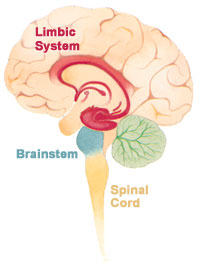- MBTI
- INTP
- Enneagram
- 5
I have just had a bit of a Eureka! moment. It's regarding INFJ's ability to feel other people's emotions.
First I have to tell you about an experiment I read about around a month ago. They got a chimpanzee and put electrodes on it's head to measure what parts of it's brain it was using during various activities. They had the chimp reach for a banana and watched what happened. They then had a man reach for a banana while the chimp watched. It was discovered that watching the man reach for a banana used almost identical parts of the brain as the chimp reaching for it himself.
This led to further research and they found that we have a part of our brain that gives us an internal representation of what it is like to do something that we are watching someone do (for the men here: have you ever seen someone on telly get hit the groin? makes you flinch doesn't it?)
What emotional state we are in and what information we are internally accessing is shown in our bodies. This includes eye movements, muscle tension in the face and other body parts, colour change in the face, lip size (yes our lips change size), posture and breathing etc.
Now finally to my point. I think our subconscious is picking up all these subtle changes that most people aren't aware of and giving us an internal representation of what it would be like to give off those signals. So we temporarily enter the same state as the person we are watching. and can even access some of the same information they are accessing.
Comments please
First I have to tell you about an experiment I read about around a month ago. They got a chimpanzee and put electrodes on it's head to measure what parts of it's brain it was using during various activities. They had the chimp reach for a banana and watched what happened. They then had a man reach for a banana while the chimp watched. It was discovered that watching the man reach for a banana used almost identical parts of the brain as the chimp reaching for it himself.
This led to further research and they found that we have a part of our brain that gives us an internal representation of what it is like to do something that we are watching someone do (for the men here: have you ever seen someone on telly get hit the groin? makes you flinch doesn't it?)
What emotional state we are in and what information we are internally accessing is shown in our bodies. This includes eye movements, muscle tension in the face and other body parts, colour change in the face, lip size (yes our lips change size), posture and breathing etc.
Now finally to my point. I think our subconscious is picking up all these subtle changes that most people aren't aware of and giving us an internal representation of what it would be like to give off those signals. So we temporarily enter the same state as the person we are watching. and can even access some of the same information they are accessing.
Comments please


